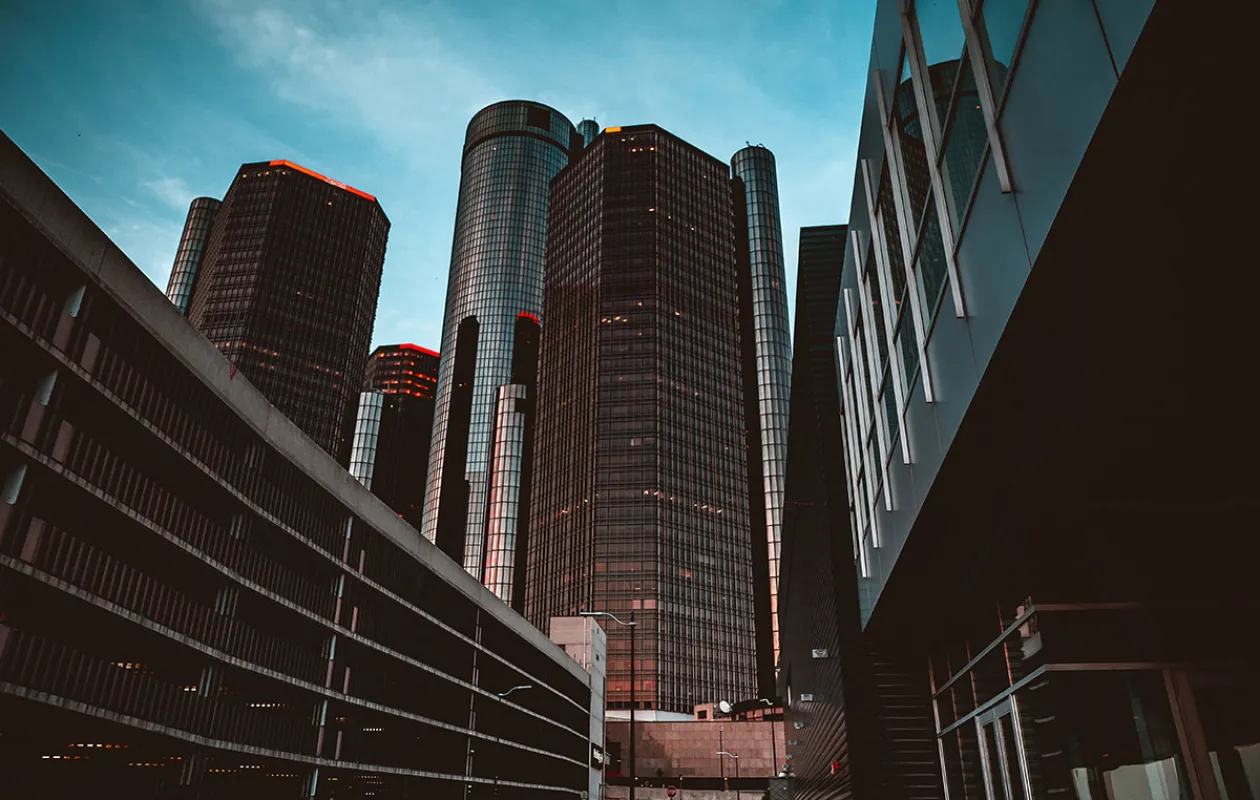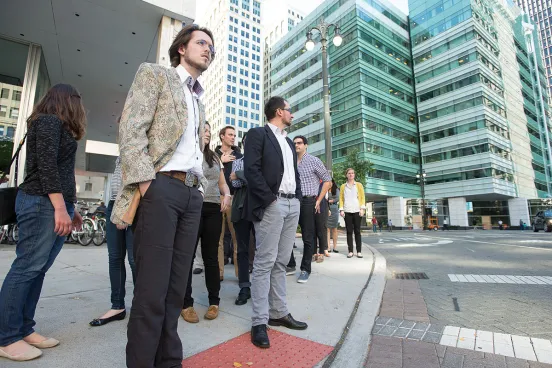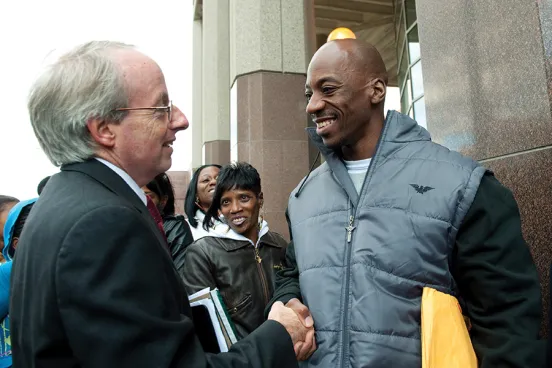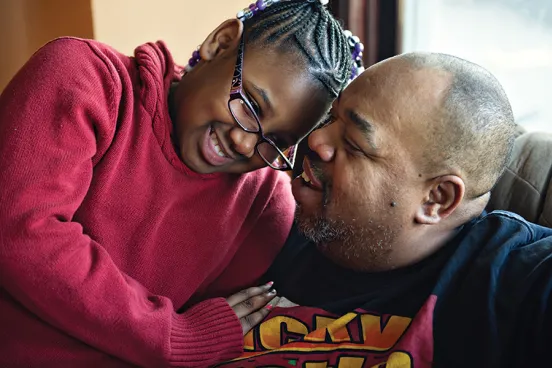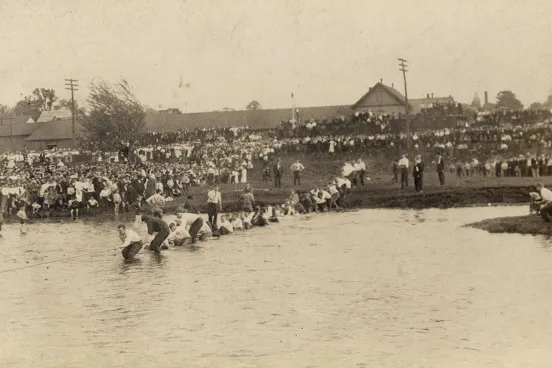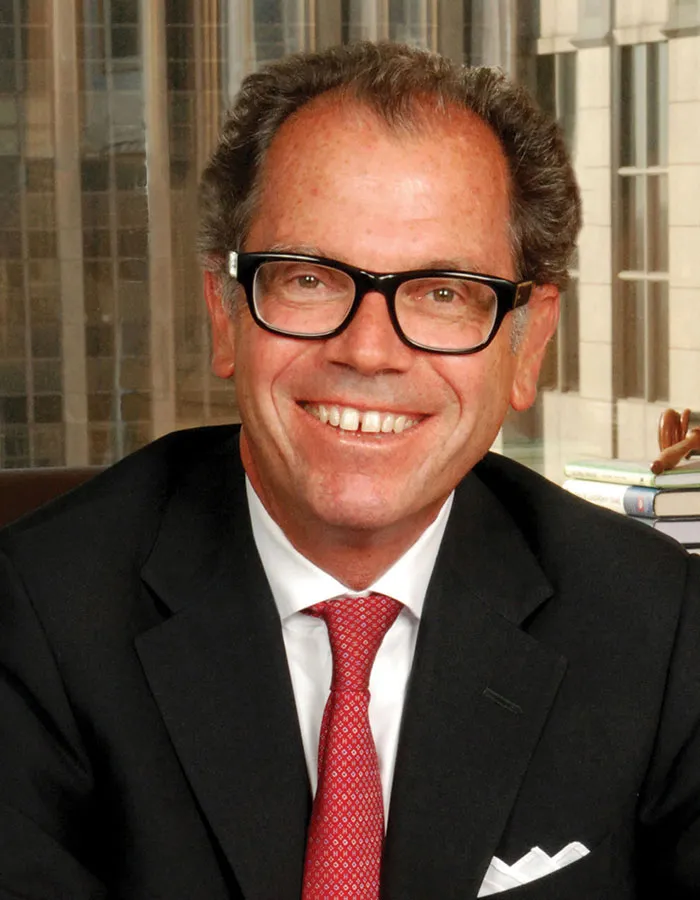
What is it like for a major law firm to do business in Detroit right now? For many who live outside the city and even the state, the perception might be that Detroit is a “dead” city and that few big-firm clients are Detroit-based companies and organizations.
That isn’t the case, say Michigan Law alumni David Foltyn, ’80, Michael McGee, ’82, and Richard Rassel, ’66. The trio are the leaders of the three largest law firms in Detroit: Honigman Miller Schwartz and Cohn LLP, Miller Canfield, and Butzel Long, respectively. And their rosters include high-profile clients from the Motor City.
“We are doing exceptionally well in Detroit,” says Foltyn, partner, chairman, and CEO at Honigman, the largest of the Detroit law firms. “We’ve had a series of record years, and our firm is thriving. There isn’t a major real estate development here that our firm hasn’t been intimately involved with, including the Renaissance Center and the One Detroit Center.”
Honigman’s clients include the Detroit Institute of Arts, General Motors, Taubman Properties, and businessman/developer Dan Gilbert, who founded Rock Financial and Quicken Loans. Gilbert is a major player in Detroit’s revitalization, and Honigman is representing him and his affiliates as they develop buildings in the downtown area.

Miller Canfield not only has fared well during the difficult era in Detroit; it also is involved in turning things around in the city. The firm has represented the City of Detroit for nearly 100 years, is co-counsel to the city in its bankruptcy proceedings, and has been counsel on its restructuring since early 2012, says McGee, the firm’s CEO. In addition, Miller Canfield lists Comerica Bank, which was founded in Detroit, as a longstanding client and represents the principle Detroit automakers, particularly Chrysler.
Foltyn, McGee, and Rassel, chairman of Butzel Long, also point out that their firms’ client base extends beyond the city and region.
“Any challenges we face are not related to the city, per se, and I think this is true of most of the larger law firms that are headquartered or maintain offices in Detroit,” McGee says. “All of us have a revenue base that is substantially greater than the city, and extends outside of the state and, to some extent, outside of the country.”
The three also note that they have made changes to their business practices over the years unrelated to Detroit’s decline and current bankruptcy. Rather, they are a result of changing legal and business landscapes and the need to be responsive to clients’ evolving expectations.
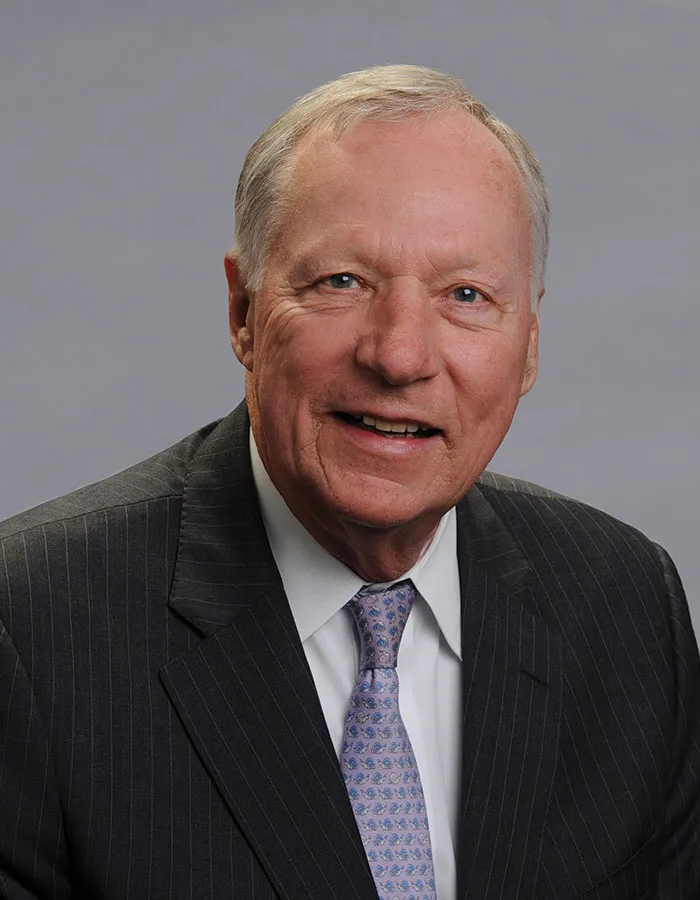
“The world is changing every day, and so are the expectations of clients,” says Rassel, whose firm, Butzel Long, represents a large and varied client base that includes 40 of the top 100 global auto suppliers. “Butzel is in the middle of adaptive change in every one of our industry practice areas. Clients expect you to be producing a wealth of internal things that they haven’t specifically asked for, including industry expertise and thought leadership, that wouldn’t have been as prevalent five years ago.”
“As the market evolves and as the economy itself evolves,” McGee says, “the lawyers evolve. You have to anticipate what clients need and deliver first-rate services, and do it very efficiently and in a manner in which the client appreciates the value.”
A surprising upside to Detroit’s bankruptcy, Rassel says, is that it has made it easier to set the record straight with outsiders who harbor what he sees as misconceptions about the city. “The bankruptcy has given people permission to ask the questions they’ve wanted to ask about how things really are in Detroit,” he says, “and offers an opportunity for those who work here to provide square answers. The publicity has enabled us to positively portray what is going on here in the city.”
At Honigman, operating in a bankrupt city has been “business as usual” for the firm, says Foltyn, who notes that the firm’s Midwest location actually is advantageous. “If anything, being in Michigan and being headquartered in Detroit is a huge competitive advantage for us because when we compete with ‘money-center’ law firms, we can do so from a much more realistic cost structure than they can.”
Foltyn, McGee, and Rassel have front-row seats to Detroit’s renaissance, and they enjoy witnessing the positive changes brought about by the city’s turnaround. “For years I’ve watched Detroit’s reputation erode as a place to live and work,” says Rassel, whose firm opened its doors in Detroit back in 1854. “I see the city’s financial troubles being taken head-on and starting to reverse, and it’s exciting. There are more young people working in downtown Detroit than I can remember at any time in the last decade or more, and it’s led to a more energizing atmosphere for someone like me who has been around for a while.”
Folytn agrees. Honigman’s headquarters—the same First National Building location where the firm was founded in 1948—overlooks Campus Martius Park, a two-block commercial district in the heart of downtown. “The activity and life down here are just incredible,” he says. “Just a few years ago there were issues with building downtown, but now Detroit is thriving. We are proud not only to be located in Detroit, but to be part of its growth.”
McGee, too, shares that pride, and notes that if Detroit Emergency Manager Kevyn Orr, ’83, looks out his office window onto Jefferson Avenue, he can see the original location where Miller Canfield was founded in 1852. “It’s professionally satisfying” to be part of the legal team that is helping to guide the City of Detroit in its bankruptcy proceedings, he says, and developing the nuances of Chapter 9 bankruptcy as they relate to governmental entities is both intellectually challenging and enriching.
“To be part of an organization that has an opportunity to assist Kevyn Orr and [Mayor] Mike Duggan [’83] in making the city thrive once again is a thrill,” he says. “I take great pride in that there are an awful lot of University of Michigan and Michigan Law alumni who are substantially engaged in restoring the city. With that degree of Michigan firepower, I know Detroit is going to be successful.”


